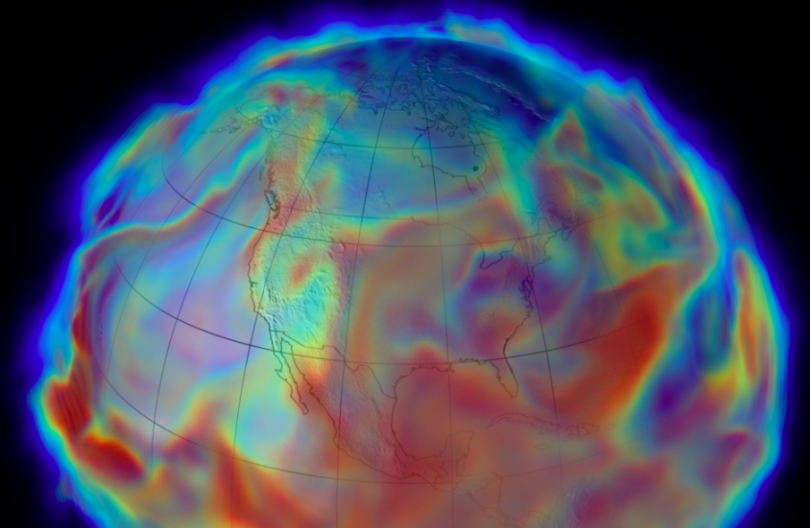 aNewDomain — Back in 2010, I watched as former Virginia Attorney General Ken Cuccinelli conducted his bitter witch hunt against climate scientist researcher Michael Mann.
aNewDomain — Back in 2010, I watched as former Virginia Attorney General Ken Cuccinelli conducted his bitter witch hunt against climate scientist researcher Michael Mann.
It was brutal. Cuccinelli, after all, had the Commonwealth’s tax dollars (mine, included) and all its legal muscle at his disposal.
I was reminded of the whole sorry situation by an opinion piece Mann wrote in a recent edition of the Washington Post. In it, Mann described his fears about the incoming Trump Administration’s anti-science rhetoric in light of his struggle to ward off Cuccinelli. He also talked about death threats he’s received along the way.
Mann’s experience is scary for two reasons. The first one’s obvious: It’s that government agencies are ready and willing to wield the power and resources of government to oppose scientific research.
The second is subtler, but just as dangerous. It reveals how anti-science officials in government cover up their actions under a veil of secrecy that’s surprisingly hard to penetrate.
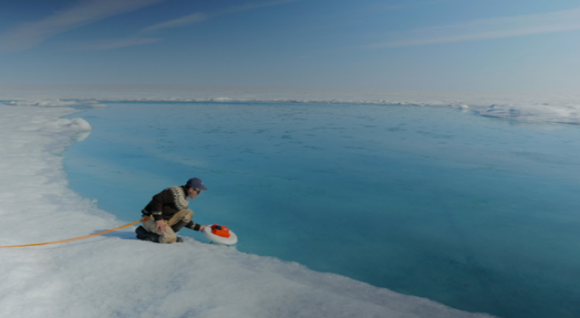
Take what happened with the Cuccinelli regime in Virginia. At the time, I tried repeatedly to find out how much money the Commonwealth was spending on persecuting Mann and his employer, the University of Virginia, but to no avail.
Repeated attempts to go through channels via both the Governor’s office and the Attorney General’s office were met with silence — or with vague statements saying such data were not available.
The idea of a legal department not tracking how much time was being spent on high profile politically sensitive actions seemed preposterous at the time. Eventually, an anonymous source sent me an internal report that described a recent installation of a time-tracking system for use by the Attorney General’s office.
But by then I was fed up with tilting at windmills. Like many Virginians, I felt my only recourse would be in voting him out of power.
And that did happen in the end. In 2013, Cuccinelli ran for Virginia governor against Terry McAuliffe, who made Cuccinelli’s attacks on Mann and climate science a central campaign issue — and won. Many celebrated this as a sign of turning tides. “Virginians voted (an) against anti-science candidate,” exulted an editorial in The Guardian, “showing that climate realism is a winning stance” in America.
It continued:
“But all isn’t lost. Recent polls show that most Republicans recognize that climate change is happening. Only the Tea Partiers continue to live in denial. If enough conservatives view anti-science, anti-environmental stances as a losing proposition, then maybe, just maybe, this once grand old party can re-establish itself as a protector of the planet for our current and future welfare. We can only hope.”
That was four years ago.
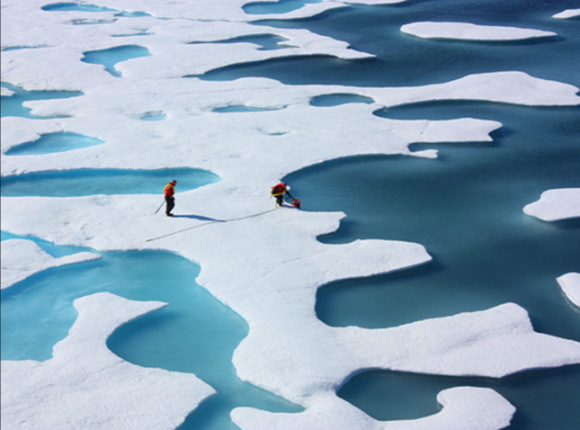 The network effect
The network effect
I’m a glass half full kind of guy. But from what I’ve seen so far of the incoming Trump Administration, we are now facing something far more worrisome than anything that’s come before.
If Trump’s scientific research policies evolve the way his campaign rhetoric and his key appointments suggest, they will inflict both short and long-term damage to worldwide U.S. scientific leadership, reputation and competitiveness.
The first victims will fall into the climate, environmental and energy research categories.
Executive actions that hobble research funding in those areas won’t harm just them. They’ll set off a ripple effect.Funding reductions, for instance, will of course impact education and training for the graduate students and post-docs who rely on government research grants.
These students will just shift to other areas and, over time, more and more will avoid programs that appear dependent on insecure policy-sensitive funding. Or worse, they’ll just drop out entirely.
Multi-institution consortia and research programs that promote collaboration and data sharing may also suffer as funds supporting, say, remote access to cloud-stored climate research data, are cut back or disappear.
RELATED: Toolbox: How To Change The Mind of a Climate Change Denier
The immediate impact of funding reductions in new research areas dubbed “politically sensitive” at first will be mostly human. But longer term, the U.S. stands to suffer an utter loss of competitiveness. As the American scientists and companies are hog-tied, other countries will be able to push ahead and commercialize their research, especially in the fast-moving non-nuclear energy science field.
Brain drain
And, as clean energy industries grows at our nation’s expense, American jobs at home will fall into danger.
U.S. industry has always been at least partly dependent on publicly funded research. It is one of the many inputs to product development. It would be interesting to know if entrepreneurs such as Elon Musk have relied on research and patents that originated with funding by the U.S. government.
Much private sector work is.
Many collaborations and partnerships exist between government-backed research institutions and the nation’s most successful private companies. Take the U.S. Department of Commerce data collaboration project.
It’s powered by a consortium of NOAA scientists, and researchers at Amazon Web Services Google Cloud Platform, Microsoft, IBM and Global Cloud Consortium. If the NOAA were forced to cut a project like that, the effect is to cut jobs in the private sector it works with, too.
Before long, you have not just ripples, but an all-out network effect.
As whole fields of inquiry and the industries they support start winnowing down, more and more researchers, workers and students will consider transferring to institutions and firms in nations that, unlike the US, don’t summarily discourage whole fields of study for political reasons.
Imagine you are a top-tier incoming graduate student with offers from both U.S. and foreign graduate programs. Would you choose a cash-starved program that the US government openly wants to kill off, or one full of resources and opportunity elsewhere.
Where would you go?
And if and when you decide to go, after you finally complete your education overseas how likely are you to come back to the US to work, where the research institutions and private companies in your field don’t have the research, technology or networks to support what you do?
The alternative: Stay overseas and contribute your time and energy to some other more welcoming country’s economy and competitiveness. Over time, that decision would look more and more attractive.
The politics of research
Research funding has always had a political component. It’s always at work, it’s just a lot more noticeable in times of war or political upheaval. Think back to the Manhattan Project, or to the post-Sputnik Biological Sciences Curriculum Study (BSCS) program here in America.
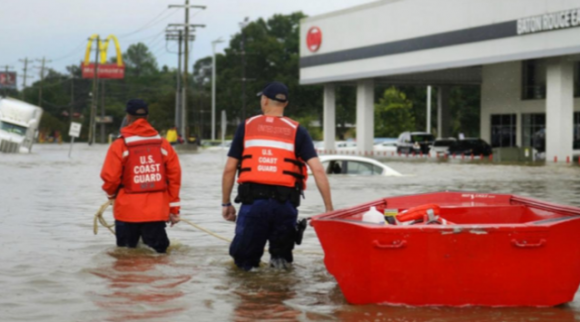 As authoritarian regimes rise up in nations around the world, including ours, you could make the case that we’re looking at the same dynamic right now.
As authoritarian regimes rise up in nations around the world, including ours, you could make the case that we’re looking at the same dynamic right now.
Moving forward, as our nation’s anti-science policies continue over the next few months and years, foreign countries will find it easier and easier to successfully compete with the U.S. and beat us out in all manner of scientific fields and industries.
And, as sea levels rise and threaten to flood coastal cities around the world in ways that the U.S. military has determined could threaten our national security, well, you can see where this leads.
Shouldn’t we be encouraging independent scientific research that advances our national interests?
The challenge
Americans rightfully expect and demand that our elected representatives and federal employees make science-related decisions knowledgeably and without superstition, and with the nation’s short and long term interests in mind.
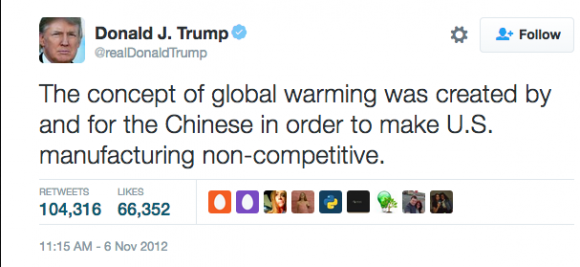 But with an incoming administration full of senior policy makers who are either disdainful of science or have no background or desire to understand how it works or what it is looking at, we’ve all got a harsh reality ahead.
But with an incoming administration full of senior policy makers who are either disdainful of science or have no background or desire to understand how it works or what it is looking at, we’ve all got a harsh reality ahead.
Policy makers, after all, will be taking their cues from President Trump, a man who two weeks ago reframed his position on climate change from something that “was created by and for the Chinese” to “Nobody really knows — it’s not something that’s so hard and fast” and “it’s just weather.” (!)
Trump’s vowed to pull America out of the Paris climate agreement and to block The Clean Power Plan, which would reduce the power sector’s heavy carbon emissions.
Considering all this, it’s inevitable that scientists and Americans who believe in science now have no choice to become political, even more political than they already are. That’s the harsh reality.
For aNewDomain, I’m Dennis D. McDonald.
An earlier version of this column ran on Dennis D. McDonald’s site. Read it here.
The NASA Center for Climate Simulation (NCCS) runs complex models to help scientists and laypeople to better understand Earth’s climate and why they should never confuse it, as Trump has, with the weather. Here it is below.
Here is the campaign ad Cuccelli’s opponent in the Virginia gubernatorial race leveraged against Cuccelli’s attack on TK and his anti-science stance
Cover image: Modern Era Retrospective-analysis for Research and Applications (MERRA) depiction of atmospheric humidity on June 17, 1993, the day the Great Flood struck the U.S. Midwest, via: Michele Rienecker, Max Suarez, Ron Gelaro, Julio Bacmeister, Ricardo Todling, Larry Takacs, Emily Liu, Steve Pawson, Mike Bosilovich, Siegfried Schubert, Gi-Kong Kim, NASA/Goddard; Visualization: Trent Schindler, NASA/Goddard/UMBC/NASA, All Rights Reserved. Inside: MIT.edu, All Rights Reserved; Weather.com, All Rights Reserved,

